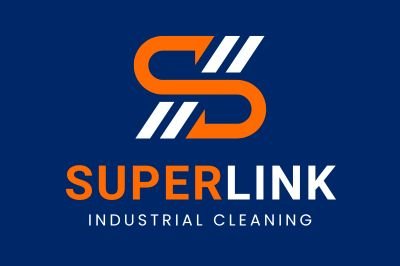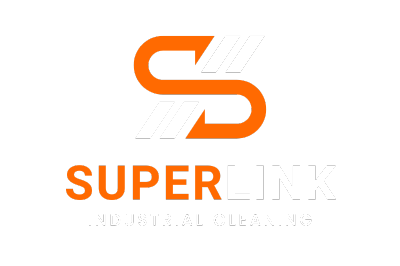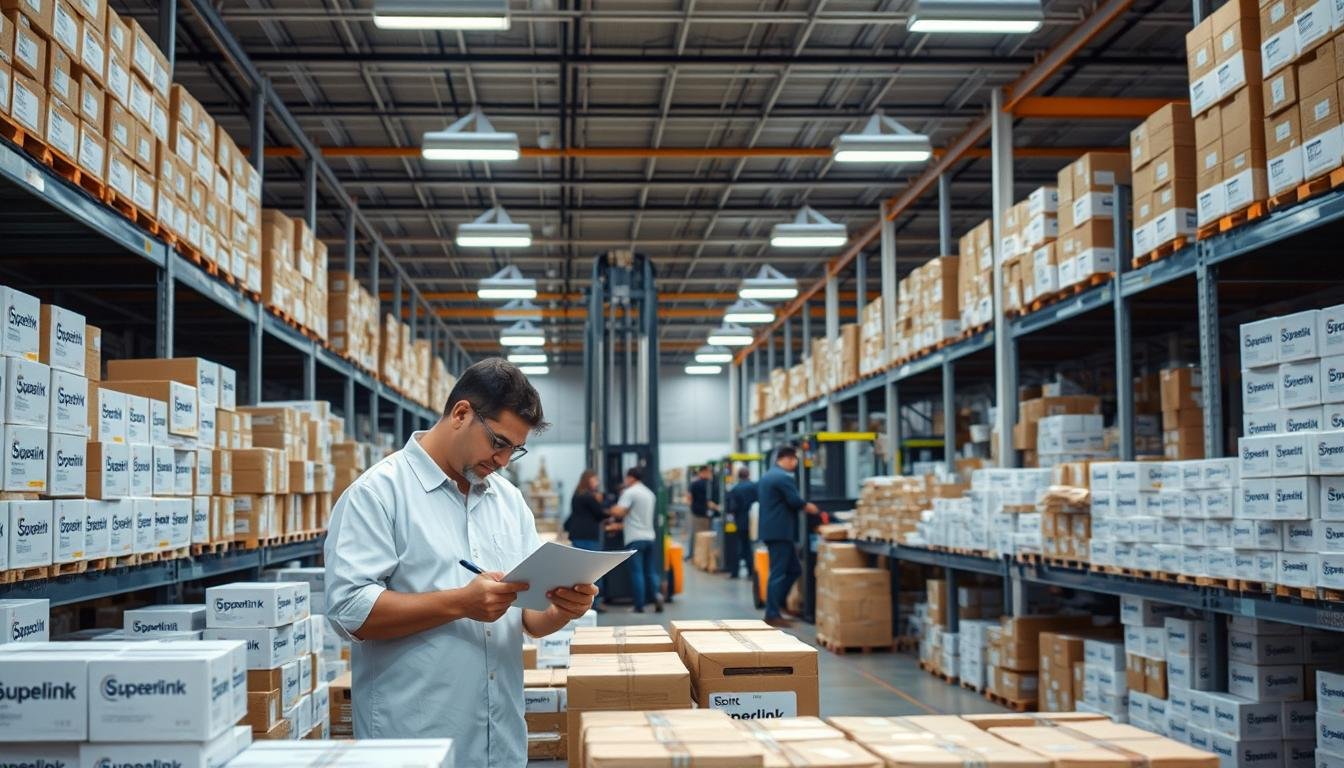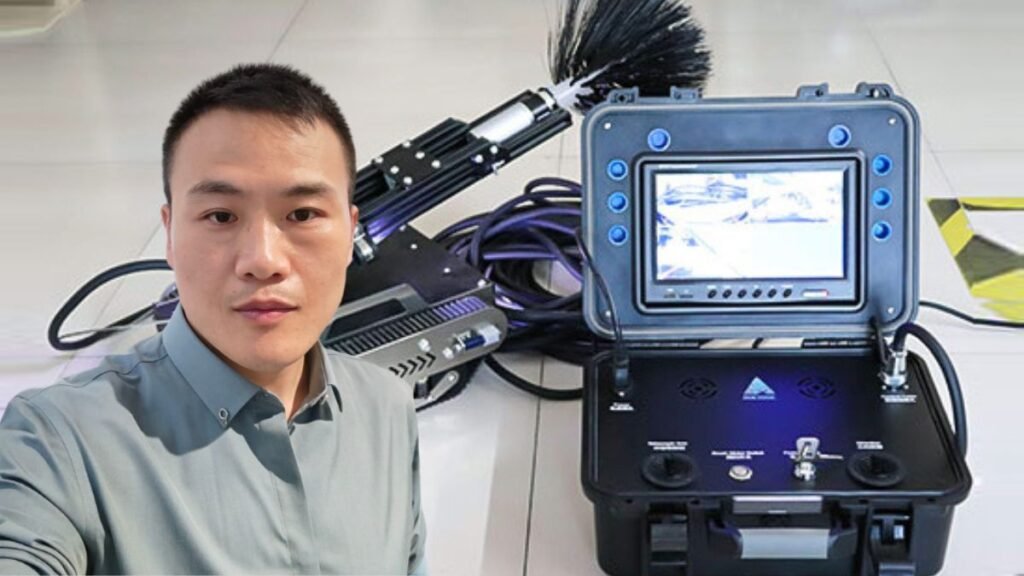Are you tired of dealing with poor air quality and hidden kitchen dangers? These could be hurting your restaurant’s success. Commercial duct cleaning systems might be the answer you’ve been looking for!
Kitchen duct cleaning machines are more than just tools. They are your secret weapon for a safe, efficient, and top-performing kitchen. With over 50% of commercial kitchen fires caused by grease in ducts, getting professional machines is a must.
Professional duct cleaning systems do more than just clean. They improve air quality, lower fire risks, and can save thousands in repair and replacement costs.
Key Takeaways
- Kitchen Duct Cleaning Machines reduce fire hazards by up to 80%
- Professional cleaning can improve HVAC efficiency by 20%
- Regular maintenance prevents grease buildup and system failures
- Clean ducts lead to better staff health and kitchen performance
- Investing in quality cleaning equipment pays off in the long run
Importance of Kitchen Duct Cleaning
Kitchen ventilation is more than just moving air. It’s about making a safe, healthy, and efficient workspace. Proper duct cleaning is key to keeping kitchen environments top-notch, protecting staff and operations.
Understanding Kitchen Air Quality
Clean air in commercial kitchens is essential, not just a luxury. Duct cleaning equipment removes:
- Grease particles
- Smoke residue
- Cooking odors
- Airborne contaminants
“A clean kitchen is a healthy kitchen” – Food Safety Experts
Impacts on Health and Safety
Kitchen air quality is a high-stakes issue. Regular use of air vent cleaning tools can prevent serious health and safety risks.
| Risk Category | Potential Consequences |
|---|---|
| Fire Hazards | Grease buildup increases fire risk by 70% |
| Respiratory Issues | Unclean ducts can trigger staff allergies |
| Equipment Efficiency | Reduced ventilation system performance |
Regulatory Compliance Concerns
Staying compliant is not optional. The Regulatory Reform (Fire Safety) Order 2005 requires strict kitchen extraction system maintenance.
- High-Volume Kitchens: Clean every 3 months
- Moderate-Volume Kitchens: Clean every 6 months
- Low-Volume Kitchens: Clean annually
Investing in professional duct cleaning is more than just meeting regulations. It’s about protecting your business, staff, and reputation.
What Are Kitchen Duct Cleaning Machines?
Kitchen exhaust hood cleaners are advanced tools for cleaning ventilation systems. They are key to keeping commercial and industrial kitchens safe and clean.
There are many types of ventilation duct cleaning devices. Each one is made for different cleaning tasks. Let’s dive into the world of these important machines!
Types of Cleaning Machines
- Robotic Duct Cleaning Systems
- High-Pressure Steam Cleaners
- Industrial Vacuum Systems
- Rotary Brush Cleaning Devices
How They Operate
Modern kitchen duct cleaning machines use advanced tech to clean out grease, dust, and more. The PC-G10 kitchen duct cleaning robot is a great example. It shows the latest in innovation with its impressive specs:
| Feature | Specification |
|---|---|
| Dimensions | 350 x 230 x 250 mm |
| Maximum Climbing Angle | 60° |
| Travel Speed | 0-7 m/min |
| Camera System | 3 High-Definition Cameras |
Key Components and Features
Professional kitchen exhaust hood cleaners have several important parts:
- Powerful Suction Mechanisms
- High-Temperature Steam Cleaning
- Advanced Filtration Systems
- Real-Time Monitoring Capabilities
“Clean ducts are the hidden heroes of kitchen safety and efficiency!” – Industry Expert
These devices are made to handle tough grease and debris. They ensure good air quality and lower fire risks in commercial kitchens.
Benefits of Using Professional Machines
Restaurant duct cleaning machines are a game-changer for commercial kitchens. They offer many advantages beyond simple maintenance. Let’s explore how these machines can transform your kitchen’s performance!
Enhanced Airflow and Efficiency
Professional kitchen duct cleaning machines greatly improve ventilation systems. Studies show they can increase HVAC system efficiency by up to 25%. This makes your kitchen more productive.
Clean ducts mean:
- Faster air circulation
- Reduced operational resistance
- Smoother exhaust system performance
“Clean ducts are the heartbeat of an efficient kitchen” – Restaurant Engineering Quarterly
Reducing Fire Hazards
Fire prevention is key in commercial kitchens. Professional machines remove up to 90% of grease and fire risks. This approach greatly lowers the chance of kitchen exhaust system fires.
Improving Energy Costs
Investing in top-notch HVAC duct cleaning machines saves energy. Restaurants can save $300-$500 a year by keeping their exhaust systems clean.
| Cleaning Benefit | Potential Savings |
|---|---|
| Energy Efficiency | Up to 30% reduction |
| Equipment Longevity | 20-30% extended lifespan |
| Maintenance Cost | 25% reduction in emergency repairs |
Smart cleaning isn’t an expense—it’s an investment in your kitchen’s future!
Choosing the Right Cleaning Machine
Finding the right grease duct cleaning machinery can be tricky. The right industrial duct cleaning units are key to keeping your kitchen clean and safe.

Critical Factors for Machine Selection
When choosing your cleaning equipment, keep these points in mind:
- Kitchen Size: Make sure the machine fits your space
- Cleaning Power: It should remove grease and debris well
- Versatility: It should work with different duct setups
- Maintenance Requirements
Top Performing Brands
Several top brands lead the market in industrial duct cleaning units:
- CleanAir Pro Systems
- VentMaster Professional
- UltraClean Industrial Solutions
Balancing Cost and Quality
“Investing in high-quality cleaning machinery is investing in your kitchen’s safety and efficiency.”
While cost is important, think about long-term benefits. High-end vacuum systems with HEPA filters clean better, capturing 99.97% of particles.
Consider these cost-effectiveness factors:
- Durability of equipment
- Maintenance expenses
- Energy efficiency
- Potential long-term savings
Interactive Selection Quiz
Ready to find your perfect cleaning companion? Take our quick quiz to find the ideal grease duct cleaning machinery for your needs!
Maintenance Best Practices for Machines
To keep your commercial duct cleaning systems in great shape, you need a solid maintenance plan. Professional kitchen teams know that regular care can make your machines last longer and avoid expensive repairs.
Regular Cleaning and Inspection Protocols
Good maintenance starts with regular checks. Here are key steps to keep your equipment working well:
- Do weekly visual checks on all machine parts
- Look for wear, grease, or mechanical stress signs
- Follow the maker’s advice for cleaning filters and moving parts
Professional Servicing Recommendations
Getting professional help can really boost your Kitchen Duct Cleaning Machines’ performance and life. Certified techs offer special services that go beyond simple cleaning.
| Service Type | Frequency | Key Benefits |
|---|---|---|
| Comprehensive System Check | Quarterly | Spot issues before they get big |
| Deep Cleaning | Semi-Annually | Clear out stuck grease and dirt |
| Motor and Fan Inspection | Annually | Keep mechanical parts running smoothly |
Storage Tips for Machine Longevity
Storing your machines right is key to keeping them in good condition. Here are some important tips to protect your investment:
- Keep them in a clean, dry spot
- Use covers when not in use
- Do maintenance before long breaks
“Regular maintenance isn’t an expense – it’s an investment in your kitchen’s safety and efficiency.” – Industry Expert
By sticking to these maintenance tips, you’ll get the most out of your Kitchen Duct Cleaning Machines. This ensures a safe and efficient kitchen for everyone.
DIY vs. Professional Cleaning
Choosing between DIY and professional cleaning for kitchen exhaust hoods can be hard. It’s important for both restaurant owners and home cooks to know the best way to clean ducts. This keeps the air clean and safe.
Pros and Cons of DIY Cleaning
DIY cleaning tools might save money, but they have big downsides. Here are the main points:
- Cost-effective for small cleaning tasks
- Limited effectiveness with complex duct systems
- Potential risk of incomplete cleaning
- Lack of professional-grade equipment
When DIY Cleaning Makes Sense
DIY cleaning works well in certain cases:
- Regular maintenance of small kitchen areas
- Light grease buildup
- Accessible and straightforward vent systems
- Preventative weekly cleaning
“Not all cleaning jobs are created equal. Sometimes, you need a professional touch!” – Kitchen Maintenance Expert
Calling in the Professionals
Professional cleaners have skills DIY can’t match. The EPA says indoor air is 2 to 5 times dirtier than outdoor air. This makes professional cleaning very important.
Here’s why you should hire pros:
- Specialized high-powered equipment
- Comprehensive visual inspections
- Ability to raise HVAC system efficiency by up to 30%
- Ensuring compliance with safety regulations
Professional services cut down fire risks and boost kitchen air quality. The upfront cost is higher, but the long-term benefits are worth it.
Trends in Kitchen Duct Cleaning Technology
The world of kitchen duct cleaning is seeing big changes! New technologies are making cleaning more efficient and eco-friendly. This is great for restaurants and commercial kitchens.
Innovations Reshaping the Industry
New tools are changing how we clean ventilation systems. These include:
- Robotic cleaning systems with high-definition cameras
- AI-powered precision sensors
- Real-time performance tracking technologies
- Digital documentation and reporting tools
Eco-Friendly Cleaning Solutions
There’s a big push for green cleaning in kitchens. Modern machines now use:
- Biodegradable cleaning agents
- Less water
- Less chemicals
- Energy-saving processes
“The future of kitchen duct cleaning is not just about cleaning—it’s about smart, sustainable solutions that protect both our kitchens and our planet.”
The Future of Kitchen Duct Cleaning
Technological advancements are making kitchen duct cleaning smarter, faster, and more effective. Robots can now find problems like cracks or leaks. This gives us a better look at ventilation system health.
Looking ahead, we’ll see more smart, integrated solutions. These will not only clean but also help prevent future problems in commercial kitchens.
The Role of Regulations in Cleaning
Understanding kitchen duct cleaning regulations can seem like a puzzle. But it’s key for restaurant owners to keep their kitchens safe and efficient. These rules make sure your HVAC duct cleaning tools meet important safety and performance standards.

Overview of Key Standards
The National Fire Protection Association (NFPA) sets important kitchen safety guidelines. Their rules stress the need for regular maintenance of grease duct cleaning tools. Here are some important facts:
- 61% of commercial food business fires start from cooking equipment
- It’s recommended to clean exhaust systems at least once a month
- Full duct inspections should happen every 6-12 months
Regulatory Bodies Involved
Several groups are key in setting and enforcing kitchen cleaning standards:
| Regulatory Body | Primary Responsibility |
|---|---|
| NFPA | Fire prevention and safety standards |
| OSHA | Workplace health and safety regulations |
| Local Health Departments | Kitchen sanitation and cleanliness compliance |
Compliance Tips for Restaurant Owners
Following the rules doesn’t have to be hard. Here are some easy tips:
- Keep detailed cleaning records
- Book regular professional inspections
- Use certified HVAC duct cleaning tools
- Train staff on how to maintain equipment
“Compliance is not just about following rules – it’s about protecting your business, staff, and customers.” – Kitchen Safety Expert
Pro tip: Ignoring kitchen hood system maintenance can raise energy costs and pose fire risks. Investing in proper cleaning is always cheaper than facing disasters!
Training and Certification for Operators
Learning to use industrial duct cleaning units is more than just knowing how to operate them. Professional training turns skilled workers into certified experts. They ensure safety and efficiency in kitchen exhaust systems.
Importance of Proper Training
Getting the right training for Kitchen Duct Cleaning Machines is key to avoiding dangers. Experts who know how to clean these systems well can lower fire risks. They also keep the air in commercial kitchens clean and healthy.
- Minimize safety risks in food service environments
- Ensure compliance with industry standards
- Enhance overall cleaning effectiveness
Available Certification Programs
There are many ways to become a kitchen exhaust system pro. The NFPA 96 certification is a top choice for training.
| Certification Program | Cost | Duration |
|---|---|---|
| Certification Preparatory Course | $999 | 1 Year |
| Experienced Hood Cleaner Course | $255.55 | Annual |
Skills Needed for Effective Operation
To be good at using industrial duct cleaning units, you need technical skills and safety knowledge.
- Understanding NFPA 96 standards
- Proficiency in cleaning equipment
- Knowledge of fire prevention techniques
- Attention to detail in documentation
“Certification isn’t just a piece of paper – it’s your passport to professional excellence in kitchen exhaust system maintenance.”
Investing in the right training changes how professionals do kitchen duct cleaning. It makes their work safer and more efficient.
Common Issues with Duct Cleaning
Kitchen ventilation systems face many challenges that affect their performance. It’s important to know these common problems. This helps keep commercial duct cleaning systems running well and air vent cleaning tools working smoothly.
Identifying Lack of Maintenance Symptoms
Spotting early signs of duct system problems can stop bigger issues. Look out for:
- Reduced airflow in kitchen ventilation
- Unusual odors during equipment operation
- Visible dust accumulation around air vents
- Increased energy consumption by HVAC systems
Troubleshooting Machine Problems
Professional air vent cleaning tools can run into many problems. Common issues include motor failures, filter blockages, and mechanical wear.
| Problem | Potential Cause | Recommended Action |
|---|---|---|
| Reduced Suction | Clogged Filters | Replace or Clean Filters |
| Unusual Noise | Loose Components | Tighten and Inspect Connections |
| Performance Decline | Accumulated Debris | Comprehensive System Cleaning |
Solutions to Common Cleaning Challenges
Proactive maintenance is key to solving duct cleaning problems. Regular checks, professional services, and top-notch commercial duct cleaning systems help a lot. They make equipment last longer and work better.
Prevention is always more cost-effective than extensive repairs!
Keeping things in check can stop up to 98% of duct problems. This shows how vital regular care and expert help are.
Case Studies: Success Stories
Kitchen operations need to run smoothly, and the right tools can make a big difference. Real success stories show how professional cleaners can change a kitchen’s game.
Restaurants Achieving Remarkable Efficiency
Here are some amazing examples of how duct cleaning can change everything:
- Quintex supported over 8,000 kitchens with energy-efficient solutions
- Clients saw big improvements in how well their kitchens ran
- They saved up to 80% on energy with new cleaning tech
Cost Savings through Strategic Cleaning
Professional cleaners can save restaurants a lot of money. Smart cleaning plans can cut down on maintenance costs a lot.
| Cleaning Method | Energy Savings | Maintenance Reduction |
|---|---|---|
| Traditional Cleaning | 10-20% | Limited |
| Advanced Ventilation Duct Cleaning Devices | Up to 80% | Significant |
Customer Testimonials
“Our kitchen’s efficiency skyrocketed after implementing professional duct cleaning. We’ve seen incredible improvements in air quality and energy consumption!” – Restaurant Owner, Chicago
These success stories show the power of good kitchen ventilation care. Choosing quality cleaners is more than a cost – it’s a smart business move.
Environmental Impact of Duct Cleaning
Restaurant duct cleaning machines are key in cutting down pollution. Modern HVAC duct cleaning tools have changed how kitchens handle waste and reduce their environmental impact. They use advanced cleaning tech to keep air quality high while being eco-friendly.
The cleaning process does create waste, but new machines are more sustainable. Cleaning teams use green solutions that cut down on chemical spills and emissions. These machines also have better filters to catch pollutants, keeping them out of the air and environment.
Today’s duct cleaning is all about being green. Machines now use less water and cut down on carbon emissions. They also make sure air flows well and systems work efficiently, saving energy and helping the planet.
The future of duct cleaning is all about being eco-friendly! Makers are working on tech that improves air and protects our planet. They’re making parts that can be recycled and cleaning agents that are safe for the environment. It’s all about finding a balance between doing the job well and taking care of our planet.
FAQ
What are kitchen duct cleaning machines?
Kitchen duct cleaning machines are special tools for cleaning kitchen vents. They remove grease and dirt from vents. This ensures the air is clean and safe.
How often should I clean my kitchen ducts?
Cleaning frequency varies by kitchen size and use. Here’s a general guide:- Busy restaurants: Clean every 3-6 months- Medium-use kitchens: Clean once a year- Less busy kitchens: Clean every 1-2 yearsRegular cleaning keeps air quality good and prevents fires.
What are the benefits of professional duct cleaning?
Professional duct cleaning has many advantages:- Better air quality- Lower fire risk- More efficient HVAC systems- Lower energy bills- Staying safe and healthy- Longer equipment life- No more grease buildup
Can I clean kitchen ducts myself?
You can do some cleaning yourself, but professional cleaning is best. DIY might miss important spots. Professionals use special tools and follow safety rules.
What should I look for when buying a duct cleaning machine?
Look for these things:- Size of your kitchen and vents- Machine power and size- How easy it is to use- How long it lasts- If it fits your kitchen- The company’s reputation- How much maintenance it needs- The cost
Are there eco-friendly duct cleaning solutions?
Yes! There are now eco-friendly duct cleaning options. Look for machines that:- Use safe cleaning agents- Save water- Reduce chemical waste- Are energy-efficient- Use green cleaning tech
What regulations govern kitchen duct cleaning?
Important rules include:- NFPA 96 Standard- Local health codes- Fire safety laws- OSHA rules- Insurance standardsFollowing these rules is key to avoid fines and keep everyone safe.
How much does professional duct cleaning cost?
Prices change based on:- Kitchen size- Vent system complexity- How dirty it is- Where you liveCosts are:- Small kitchens: 0-0- Medium kitchens: 0-
FAQ
What are kitchen duct cleaning machines?
Kitchen duct cleaning machines are special tools for cleaning kitchen vents. They remove grease and dirt from vents. This ensures the air is clean and safe.
How often should I clean my kitchen ducts?
Cleaning frequency varies by kitchen size and use. Here’s a general guide:- Busy restaurants: Clean every 3-6 months- Medium-use kitchens: Clean once a year- Less busy kitchens: Clean every 1-2 yearsRegular cleaning keeps air quality good and prevents fires.
What are the benefits of professional duct cleaning?
Professional duct cleaning has many advantages:- Better air quality- Lower fire risk- More efficient HVAC systems- Lower energy bills- Staying safe and healthy- Longer equipment life- No more grease buildup
Can I clean kitchen ducts myself?
You can do some cleaning yourself, but professional cleaning is best. DIY might miss important spots. Professionals use special tools and follow safety rules.
What should I look for when buying a duct cleaning machine?
Look for these things:- Size of your kitchen and vents- Machine power and size- How easy it is to use- How long it lasts- If it fits your kitchen- The company’s reputation- How much maintenance it needs- The cost
Are there eco-friendly duct cleaning solutions?
Yes! There are now eco-friendly duct cleaning options. Look for machines that:- Use safe cleaning agents- Save water- Reduce chemical waste- Are energy-efficient- Use green cleaning tech
What regulations govern kitchen duct cleaning?
Important rules include:- NFPA 96 Standard- Local health codes- Fire safety laws- OSHA rules- Insurance standardsFollowing these rules is key to avoid fines and keep everyone safe.
How much does professional duct cleaning cost?
Prices change based on:- Kitchen size- Vent system complexity- How dirty it is- Where you liveCosts are:- Small kitchens: $300-$500- Medium kitchens: $500-$1,000- Large kitchens: $1,000-$3,000Cleaning now saves money and keeps everyone safe.
FAQ
What are kitchen duct cleaning machines?
Kitchen duct cleaning machines are special tools for cleaning kitchen vents. They remove grease and dirt from vents. This ensures the air is clean and safe.
How often should I clean my kitchen ducts?
Cleaning frequency varies by kitchen size and use. Here’s a general guide:- Busy restaurants: Clean every 3-6 months- Medium-use kitchens: Clean once a year- Less busy kitchens: Clean every 1-2 yearsRegular cleaning keeps air quality good and prevents fires.
What are the benefits of professional duct cleaning?
Professional duct cleaning has many advantages:- Better air quality- Lower fire risk- More efficient HVAC systems- Lower energy bills- Staying safe and healthy- Longer equipment life- No more grease buildup
Can I clean kitchen ducts myself?
You can do some cleaning yourself, but professional cleaning is best. DIY might miss important spots. Professionals use special tools and follow safety rules.
What should I look for when buying a duct cleaning machine?
Look for these things:- Size of your kitchen and vents- Machine power and size- How easy it is to use- How long it lasts- If it fits your kitchen- The company’s reputation- How much maintenance it needs- The cost
Are there eco-friendly duct cleaning solutions?
Yes! There are now eco-friendly duct cleaning options. Look for machines that:- Use safe cleaning agents- Save water- Reduce chemical waste- Are energy-efficient- Use green cleaning tech
What regulations govern kitchen duct cleaning?
Important rules include:- NFPA 96 Standard- Local health codes- Fire safety laws- OSHA rules- Insurance standardsFollowing these rules is key to avoid fines and keep everyone safe.
How much does professional duct cleaning cost?
Prices change based on:- Kitchen size- Vent system complexity- How dirty it is- Where you liveCosts are:- Small kitchens: $300-$500- Medium kitchens: $500-$1,000- Large kitchens: $1,000-$3,000Cleaning now saves money and keeps everyone safe.






